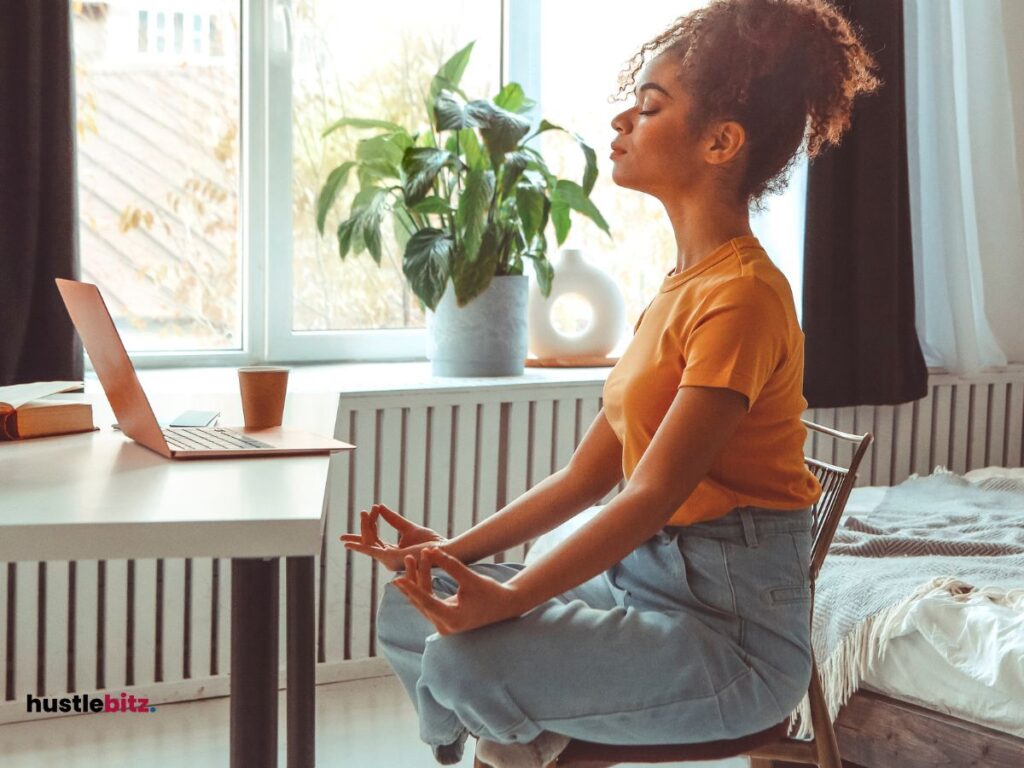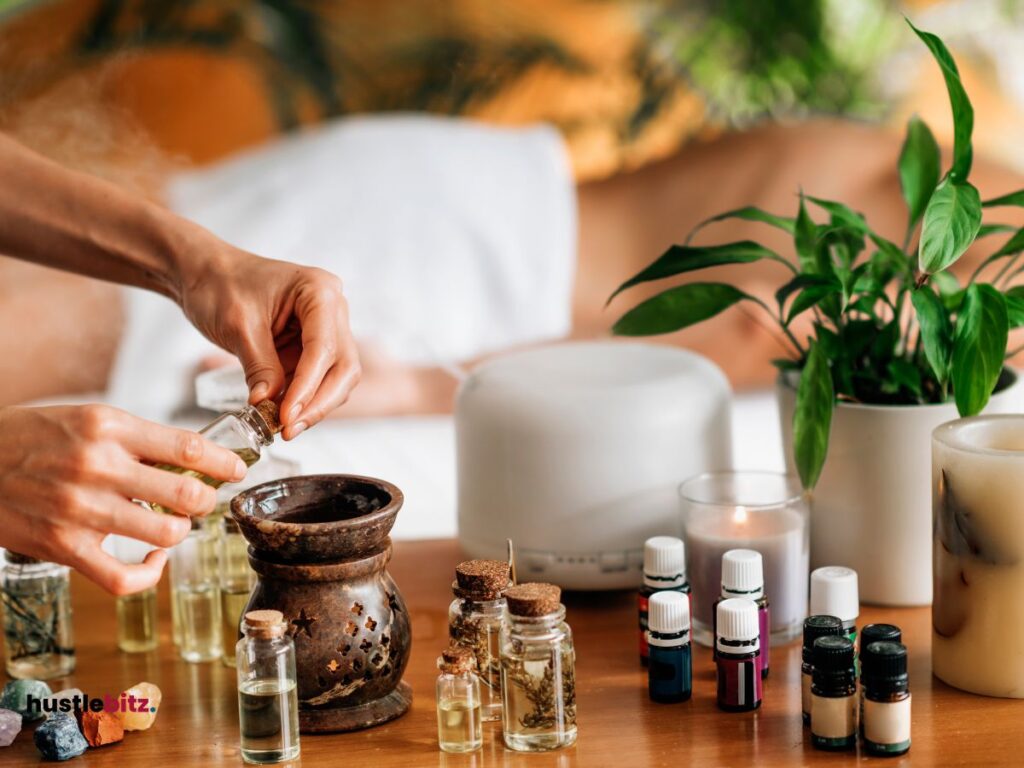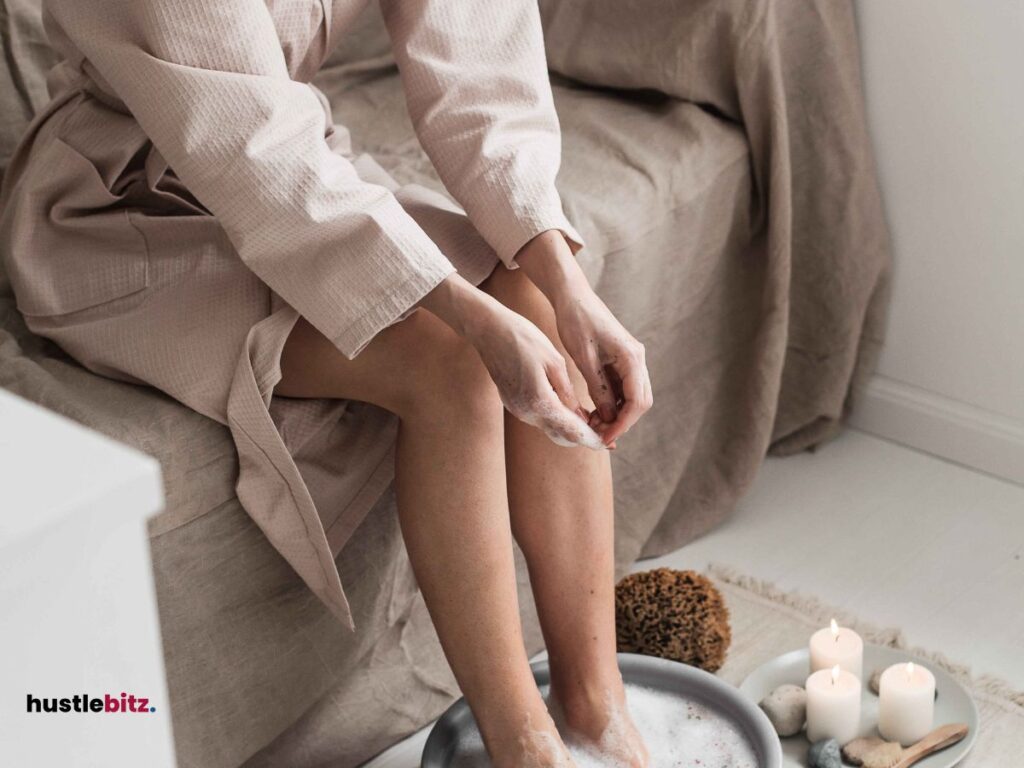Stress relief through self-care involves innovative approaches that enhance mental well-being. Mindful breathing techniques, such as the 4-7-8 method, promote calmness and emotional resilience. Engaging with nature through walks or gardening reduces stress and enhances cognitive function. Implementing a digital detox can help establish healthy boundaries with technology, allowing for self-reflection. Movement-based activities like yoga and dance boost mood and creativity. Aromatherapy with essential oils, alongside artistic expression, offers therapeutic relief. Creating a DIY spa day fosters relaxation and connection. Discovering more about these techniques can enrich your self-care journey.
Key Takeaways
- Practice mindful breathing techniques, such as the 4-7-8 method, to foster calmness and enhance present-moment awareness.
- Engage in nature immersion activities like hiking or gardening to reduce stress and improve emotional resilience.
- Implement a digital detox by setting screen-free zones and scheduling tech-free times for relaxation and self-reflection.
- Incorporate movement-based activities, such as yoga or dance, to boost mood and promote physical well-being.
- Explore artistic expression through painting or drawing to release emotions and alleviate anxiety.

Mindful Breathing Techniques
Mindful breathing techniques serve as a powerful tool for alleviating stress by fostering a state of calm and enhancing present-moment awareness. By incorporating mindfulness into our daily routines, we can effectively harness the benefits of deep breathing to create a serene mental environment. These relaxation techniques not only promote tranquility but also serve as essential self-care tips for those seeking to reduce stress and anxiety in both personal and professional contexts.
Engaging in deep breathing exercises encourages a shift in focus from external stressors to the internal experience of breath. For instance, the 4-7-8 technique involves inhaling for four counts, holding the breath for seven counts, and exhaling for eight counts. This structured approach can help individuals feel more grounded and centered. Furthermore, practicing mindful breathing for just a few minutes each day can significantly enhance emotional resilience, allowing individuals to respond to challenges with greater equanimity.
In a world increasingly characterized by rapid pace and constant distraction, integrating mindfulness and deep breathing into self-care routines becomes imperative. This practice not only nurtures individual well-being but also equips us to better serve others. By prioritizing our mental health through these techniques, we cultivate a compassionate presence that can extend to those around us.
Ultimately, mindful breathing techniques provide a simple yet profound means of fostering peace, enabling us to navigate life’s complexities with grace and intention.
Nature Immersion Activities

Engaging in nature immersion activities can significantly enhance mental well-being by providing a restorative escape from the stresses of daily life. These activities foster an environment where individuals can reconnect with the natural world, ultimately leading to improved mental and physical health. By intentionally dedicating time in nature, we can cultivate a deeper sense of peace and relaxation, essential for effective self-care.
Self-care ideas that emphasize nature immersion can vary from simple walks in local parks to more structured activities such as hiking, gardening, or participating in community clean-up events. These experiences not only allow for personal reflection but also create opportunities to serve others, reinforcing a sense of community and shared purpose. Engaging with nature reduces stress levels by lowering cortisol, the stress hormone, and promoting feelings of tranquility and joy.
Moreover, immersing oneself in natural settings has been shown to enhance cognitive function and emotional resilience. Activities such as birdwatching or nature photography encourage mindfulness, allowing individuals to fully embrace the present moment. This immersion can result in a profound sense of well-being, as one witnesses the beauty and complexity of the environment.
Digital Detox Strategies
Implementing digital detox strategies can significantly alleviate stress by creating boundaries around technology use and fostering healthier relationships with digital devices.
In our hyper-connected world, excessive screen time can lead to feelings of overwhelm and anxiety. Engaging in self-care activities that promote a digital detox can be an effective way to reduce stress and manage stress.
Here are some practical strategies to consider:
- Set Screen-Free Zones: Designate specific areas in your home, such as the dining room or bedroom, where technology is not allowed. This encourages mindful interaction with loved ones and promotes a more serene environment.
- Schedule Tech-Free Times: Allocate certain hours of the day to unplug from all digital devices. Use this time for self-reflection, reading, or other stress relief strategies that nurture your well-being.
- Limit Social Media Use: Establish daily limits for social media engagement. Consider unfollowing accounts that do not contribute positively to your life or well-being.
- Engage in Nature: Spend time outdoors without your devices. Nature immersion can provide a refreshing break from screens and enhance your connection to the world around you.
Movement-Based Stress Relief

Incorporating movement into your daily routine can serve as a powerful tool for stress relief, complementing digital detox strategies by promoting physical well-being and mental clarity. Engaging in regular physical activity not only aids in managing stress and anxiety but also enhances overall self-care practices. Innovative ideas to include movement can vary widely, allowing individuals to select activities that resonate with their preferences and lifestyles.
The following table presents various movement-based activities, their benefits, and suggestions for implementation:
| Activity | Benefits | Implementation Ideas |
| Walking | Improves mood, boosts creativity | Take a 10-minute walk during breaks |
| Yoga | Enhances flexibility, reduces tension | Follow an online class at home |
| Dance | Elevates mood, promotes self-expression | Join a local dance class |
| Gardening | Connects with nature, improves strength | Dedicate time each week to garden |
| Group sports | Fosters community, enhances teamwork | Organize weekly games with friends |
Aromatherapy and Essential Oils

Aromatherapy, utilizing the therapeutic properties of essential oils, offers a natural and effective approach to alleviating stress and promoting emotional well-being. By engaging the senses, these essential oils can create a calming environment that encourages self-care and relaxation.
Integrating aromatherapy into your daily routine can significantly reduce stress, making it an invaluable tool for those who wish to serve others with a positive mindset.
To effectively harness the power of aromatherapy, consider the following essential oils known for their stress-relieving properties:
- Lavender: Renowned for its calming effects, lavender can help soothe anxiety and promote restful sleep.
- Bergamot: This citrus oil is known to uplift mood and ease feelings of tension and stress.
- Chamomile: Often used in teas, chamomile oil can help induce relaxation and reduce irritability.
- Frankincense: With its grounding properties, frankincense can promote a sense of peace and emotional balance.
Incorporating these oils into your self-care regimen can be as simple as using a diffuser, adding a few drops to your bath, or applying them topically (with a carrier oil).
As you explore the benefits of aromatherapy, remember that the power of scent can profoundly impact your emotional state and overall well-being. By prioritizing aromatherapy as a self-care practice, you not only enhance your own stress relief but also cultivate a nurturing atmosphere for those around you.
Embracing these practices can lead to a more harmonious and supportive environment for all.
Artistic Expression for Relaxation

Engaging in artistic expression can serve as a powerful complement to aromatherapy, offering a unique outlet for relaxation and emotional release amidst stressful times.
Artistic endeavors, such as painting, drawing, or crafting, can be instrumental in fostering self-care that promotes stress relief and enhances mental well-being. By immersing oneself in creative activities, individuals can effectively channel their emotions, thereby reducing anxiety and facilitating a deeper connection with their inner selves.
Research shows that engaging in artistic expression can alleviate symptoms associated with various mental health conditions, such as depression and anxiety. This creative process not only encourages mindfulness but also serves as a therapeutic tool to process complex emotions.
As you explore self-care ideas, consider incorporating art into your routine, whether through structured classes or spontaneous creation at home.
Group art sessions can also foster community, allowing participants to share experiences and support one another. This social aspect of artistic expression can enhance the overall experience, contributing to a sense of belonging and emotional safety.
Incorporating artistic expression into your self-care regimen is not merely about creating visually appealing work; it is about embracing the process of creation as a means of personal growth and healing.
DIY Spa Day Ideas

Creating a DIY spa day at home can provide a rejuvenating escape from daily stressors, allowing individuals to indulge in self-care practices that promote relaxation and well-being. By dedicating time to this self-care experience, you not only invest in your own mental health but also create an inviting atmosphere for family and friends.
Here are some self-care ideas and activities that can help you relax and enjoy a spa-like ambiance at home:
Soothing Bath Ritual: Fill your tub with warm water, adding Epsom salts and essential oils like lavender or eucalyptus. This simple yet effective activity will help alleviate muscle tension and promote relaxation.
Homemade Face Masks: Utilize natural ingredients such as honey, yogurt, or avocado to create nourishing face masks. These activities to try will leave your skin feeling revitalized and hydrated.
Mindful Meditation: Set aside time for meditation or deep breathing exercises while enjoying calming music. This practice of self-care can significantly enhance your mental clarity and reduce stress.
Gentle Yoga or Stretching: Engage in gentle yoga or stretching routines to further enhance your relaxation process. This physical activity not only helps to relieve tension but also fosters a deeper connection with your body.
Final Thoughts
Incorporating innovative self-care techniques into your daily routine can significantly enhance your mental well-being and overall quality of life. Whether through mindful breathing, nature immersion, or artistic expression, these practices provide powerful tools to manage stress and foster resilience. By taking time for self-care, you not only nurture your own mental and physical health but also create a more positive and supportive environment for those around you. Embrace these strategies to cultivate a balanced, peaceful, and fulfilling life.




